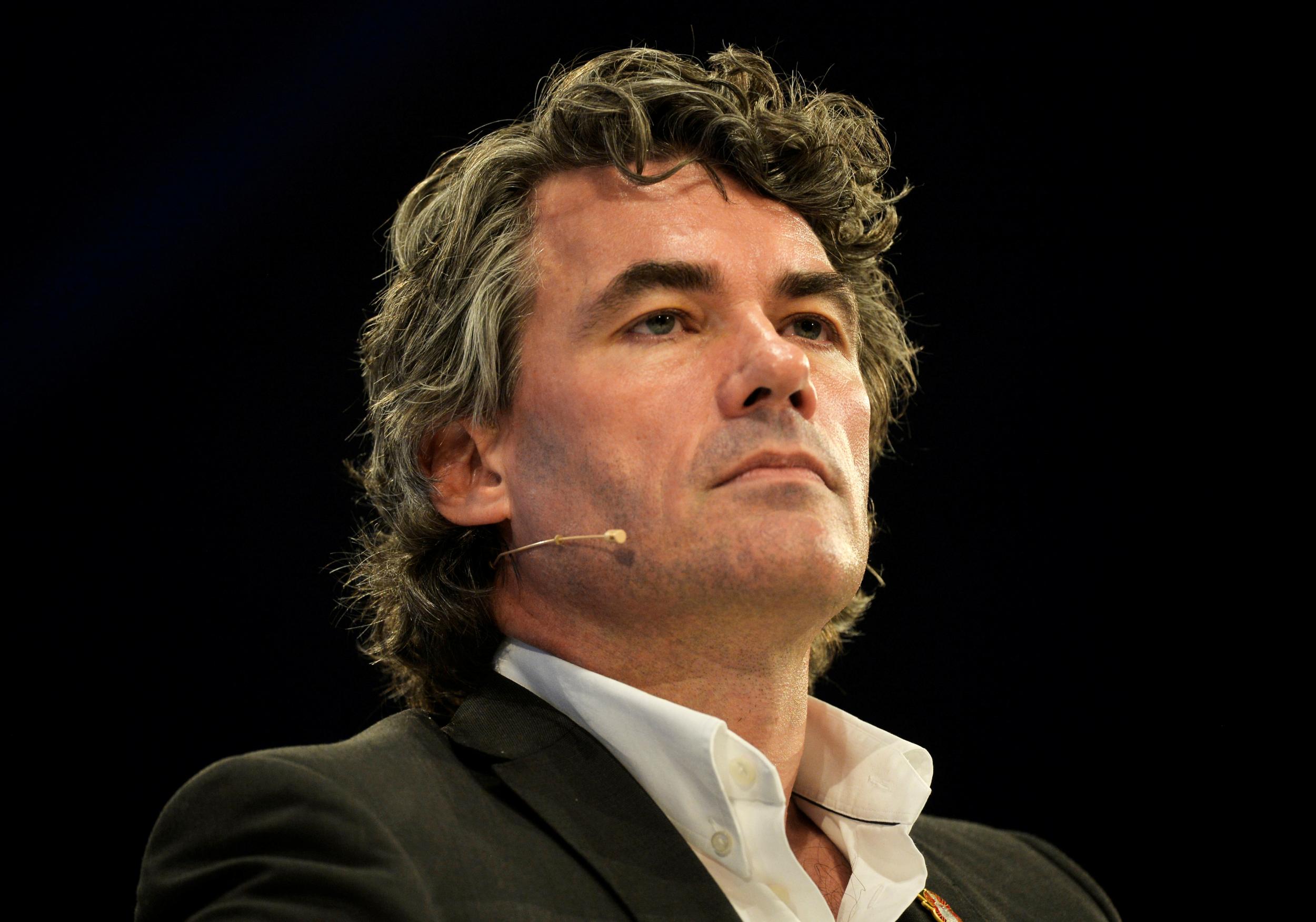Businesses should stop talking in legalese and remember their customers are human beings
Comment: BT's response to a backlash over chief executive Gavin Patterson's pay was – like too many statements from businesses – verbiage suffocated in qualification, says Chris Blackhurst


On my first national newspaper, The Sunday Times, I was summoned by the late, great Tony Bambridge.
I’d already clocked that Bambridge, a senior executive, was a joy to work with for any writer, that he could craft and hone copy like no other, and he was on the side of the journalist, provided they put the work in. He was holding a print-out of the draft of an article I’d written. “You did law, didn’t you,” he stated. It was true, my degree was in law. I nodded.
“What’s this?” He asked, pointing to his desk. “It’s a desk,” I said. “Well f*****g well say so. Don’t say, ‘it’s got a flat top and four legs, and therefore might be a desk.’ It’s a desk.”
I can’t tell you how often I’m reminded of Bambridge’s words. There is hardly a day that goes by when I don’t see a piece of writing or hear a speech that is pure verbiage, and can only have been produced by a lawyer or a robot, or both.
The latest example is particularly shocking. When I last looked, BT was supposed to be a communications company. Okay, telecommunications. But a corporation, nevertheless, that ought to pride itself on directness and speed of delivery. In that context, the ability of the receiver to comprehend should be paramount.
So, take this, from BT as it promises to overhaul its pay policies after the investor backlash following the £2.3m package handed to departing boss Gavin Patterson. The company will consider “a broader range of performance factors and wider circumstances” when determining executive remuneration. It also pointed to “a more structured process to help it step through the application of its discretion in the future.”
The shareholders’ anger, said BT, was summed up, thus: “[They] felt that the amount paid did not appropriately reflect the underlying performance of the company or take adequate account of the value created for shareholders.”
Eh? Who writes this stuff? Clearly, not someone who believes in telling it how it is, and is unable to say something for definite without suffocating it in qualification. That has to be a lawyer, or as I say, a robot, or both.
The problem with this approach is that it suggests an organisation that is hidebound, stricken with fear, unable to proceed without a high degree of caution, incapable of saying “we screwed up, and we’re sorry”. Patterson received too much – perhaps not under the strict terms of his contract – but, given the company’s poor showing, too much.
Decisions must be taken, conversations must be had and understood. Running to lawyers, sheltering behind legalese, is a default, a cop out.
But BT cannot admit that, oh no. It won’t try to claw back the money as that would be unseemly, and besides, the lawyers have probably advised that would be difficult. Instead, it attempts to sooth and gloss over with words straight out of the lawyers’ lexicon of “safe” twaddle.
Slight as it is, in the overall picture of a multi-billion pound global empire, BT’s announcement about leaders’ pay is indicative of a loss of way, a lack of confidence. Intuition has succumbed to process.
With any management there should be room for both, for the heart and the head. Of course, things have to be done properly and carefully, but they also need to be done. Decisions must be taken, conversations must be had and understood. Running to lawyers, sheltering behind legalese, is a default, a cop out. It is not the answer.
Too often, I’ve seen the lawyers rule the roost. On a product safety issue, where fatalities had ensued, they were reluctant to let the management meet the relatives and express their condolences, because this could lead to an admission of liability. In another episode, involving a food company, they took the same line. Again, after a tragedy, a holiday operator was told on no account to contact the family.
While lawyers may give their advice for the best of intentions, to avoid the client being shredded in the law courts, and having to pay out vast sums, they do not afford enough attention to that other court, the one of public opinion – and the one that these days, especially with instant relaying of news, 24-hour bulletins and social media, is increasingly vital.
There’s little point in shoring up a legal defence, in cloaking a company’s actions in legal procedure and its outpourings in law-speak, if it simply makes the company the subject of derision, and harms its reputation.
Surely it’s not beyond the wit of any intelligent C-suite member to say they share the loved ones’ pain, without stating there and then, it was the company’s fault? Likewise, is it really impossible for BT to say it recognises, and is concerned about investors’ frustrations, and will do its utmost to prevent a recurrence?
Ask any business chief what keeps them awake at night, and they will say loss of reputation – to the business, and to them, personally. It’s humans who determine how they and their organisation are judged, the basis for that reputation. Be human in everything they do, is the easiest way of achieving plaudits. That means being human in how they communicate, and in their actions.
Please BT, in future, before you press “send”, stand back and read what you’re about to convey. Listen to the lawyers, but, remember, you’re human and you’re talking to humans.
Chris Blackhurst is a former editor of The Independent, and director of C|T|F Partners, the campaigns, strategic, crisis and reputational, communications advisory firm
Join our commenting forum
Join thought-provoking conversations, follow other Independent readers and see their replies
Comments